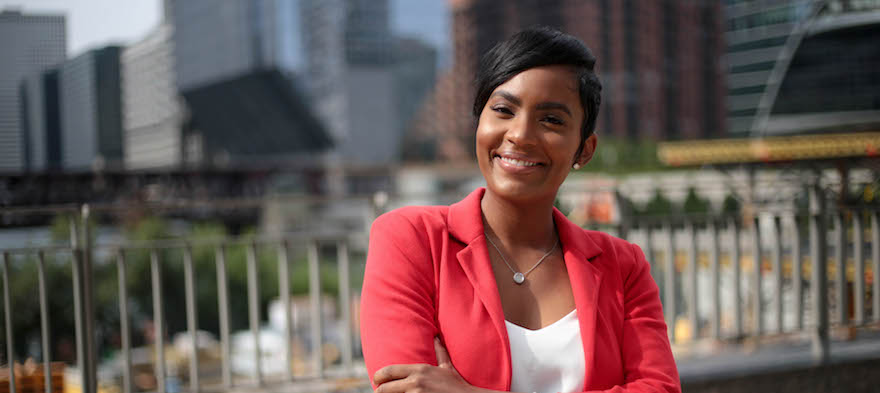At my small high school in East St. Louis, Illinois, going away to college was not accessible to all. The few most promising students were pushed toward an academic career beyond graduation, but the resources to encourage every student to explore their options were not available. Opportunities for enrichment, access to the right mentors and a cultural expectation of continuing education affect a student’s ability to even get to college in the first place. When I was a senior, a new superintendent, Dr. Stan Mims, began the process of changing the norm of low expectations and removing barriers. He found grant funding to expose more of our class to college opportunities and even fund college tours. The opportunity to experience college campuses, interact with college students, professors and campus life culture made all the difference to me. After visiting University of Illinois, Howard University, Tennessee State, Fisk and other local state colleges, I knew one thing for sure: Attending a historically Black college or university (more popularly known as HBCUs) was the only type of post-secondary institution I was interested in. The diversity of people that looked like me, culture, course offerings, extracurricular activities and oh yes, the beautiful yard was a sight to see, and I knew I wanted to experience it firsthand. My English teacher and Spelman alumna, Janice Hartsfield, encouraged me to visit her alma mater as well. “I really think you should give Spelman a chance,” she said. “Look through alumnae magazine and let me know what you think.” She was convinced it was a better fit for me than Howard and encouraged me to attend “A Day in the Life” session at Spelman College. After hearing about Mrs. Hartfield’s college memories and spending time on campus, [pullquote]I returned home a walking billboard for this historic women’s college in Atlanta.[/pullquote] Fast forward to August 2005, I remember parting ways with my family and beginning my new journey into adulthood at Spelman College. Although I was president of my high school class and earned an impressive GPA, I experienced imposter syndrome early in my time at Spelman. I saw young women whom I assumed were from more affluent families, had richer high school experiences and who had traveled abroad. But my family lent a supportive ear and helped me regain my confidence. My professors and counselors also helped me understand I deserved to be here, and I had rightfully earned my seat at this institution. My background and past experiences were the strength I needed to propel myself forward, not a weakness or deficit. Without a supportive network from family and my institution, my story might have ended differently. Coordinated, intentional and sustainable support has to come from not just one or two people, but an entire community. Being a member of Upward Bound and TRIO, programs that help students from economically challenged communities transition to college and apply for scholarships, was critical to my postsecondary success. Those opportunities, combined with support from my loving parents, enthusiastic teachers and strong school leaders helped me secure enough financial aid and confidence to thrive at Spelman. I needed encouragement, but also access to programs that filled in the gaps of what my support system could not offer.
[pullquote]Attending Spelman College further instilled the importance of civic duty and ingrained the imperative of servant leadership through any field or career I pursued.[/pullquote] I was nurtured and protected as a young Black woman, but also fully prepared and informed for the world ahead. As I graduated in 2008 with a bachelor of arts in psychology, I carried a relentless belief that no matter where you live, all young people deserve equitable access to a rigorous academic experience in a healthy environment with the care of passionate and skilled educators. In fact, these collective experiences framed my desire to choose career pathways that have a social justice component, starting as an elementary-school teacher 10 years ago on to my current role as managing director of program for OneGoal, a college access and success organization. It’s both my personal and professional mission to impact the lives of students who look like me and radically change systems we often struggle to navigate. Together, I know we can make a difference.
Photo courtesy of Brittany Collins.
